- Home
- Terri Blackstock
True Light Page 2
True Light Read online
Page 2
TWO
THE BUILDING SMELLED OF MOTOR OIL AND GREASE — A scent Deni Branning associated with progress. A symphony of roaring engines brought a smile to her face as she rolled her bike inside. Oh, for the days of noise pollution and hurry — of bumper-to-bumper traffic, honking horns, blaring radios, and twenty-four-hour TV.
All over the large warehouse, mechanics and engineers with black-stained fingers worked at converting engines. The building had been purchased by the feds a few months ago, when they instituted the draft. Instead of drafting soldiers, the government had conscripted all of those with experience as mechanics. Later, they’d added others to the conscription list: electricians, scientists, and engineers. Many of them were allowed to live at home and work in the local conversion plants, but others had been sent across the country to serve where they were needed.
Pushing down the kickstand on her bike, she reached into her bag for her notepad and looked around for someone in charge. She saw Ned Emory, from her neighborhood, standing nearby with a clipboard, instructing a group of mechanics with a disassembled engine laid out in front of them. She headed toward him.
“Excuse me,” she yelled over the noise. “Mr. Emory?”
He turned. “Yeah?”
She could see that he didn’t recognize her, even though his son Zach had been close friends with her brother for years. “Deni Branning. Jeff’s sister?”
Recognition dawned in his eyes. She reached out to shake hands with him, but he showed her his greasy hands. “Better not shake. What brings you here?”
“I’m writing an article about your work here. Do you have time for an interview?”
As if he hadn’t heard her, he turned back to the men, barked out some orders that she couldn’t hear, and started walking away. Glancing back over his shoulder, he said, “I heard the newspaper is back up and running. They hired you, did they?”
She caught up to him and tried to match his steps. “That’s right. the Crockett Times. They liked what I’d been doing on the message boards around town. This’ll be the cover story for next week’s issue.”
He didn’t seem impressed, so she pulled out her big guns. “You guys are like rock stars. Everybody wants to know what you’re up to.”
Pride pulled at the corners of his mouth, and she knew she’d struck a chord. “Sure, I can give you a few minutes. What do you want to know?”
He started up a staircase, and she blew out her frustration as she followed him. “Is there someplace we can sit down?”
“I don’t have time to sit down.” He reached the top of the stairs and headed across the concrete floor to an area where a dozen mopeds sat in various stages of completion. “Hey, Stark! I need at least four of these done by the end of the day. Get Bennett over here to help you.”
Deni’s gaze swept over the bikes. “Wow. How can I get one of those?”
“You can’t. They’re not for the private sector.” He was walking again, but she hung back, unable to tear herself away from the coveted mopeds. She stepped toward one and touched the seat.
He turned back and gave her an impatient look. “Do you want to do the interview or not?”
She shook off her longing and forced herself to focus. “Of course.”
He led her past a table filled with generators, and again, her longing kicked in. “Do those work?”
“They do after we harden them against the Pulses.”
Her heart quickened. If they were making hardened generators here, it wouldn’t be long until they actually had electricity. Could there really be lightbulbs at the end of the tunnel?
“When will those be available for the public?” she asked, catching up to him again.
“Our illustrious supernova will burn out before we can finish supplying the hospitals. They’re priority number one for the generators right now. Without robotics, assembly lines — electricity, for that matter — we have to do everything by hand, one at a time. And even if we could produce enough for the public, there’s one missing ingredient.”
“Gasoline,” she said.
“You got it.” He reached a series of offices with glass walls, overlooking the work on the floor below them. “We can’t get enough gas without operating tanker trucks, and once we get it here, we don’t have electricity to work the pumps.”
She was well aware of the chain of problems. “But aren’t you guys all about creating work-arounds?”
“Right now we’re just trying to help critical services operate. Like I said, the star will likely burn out before we get caught up with that. Then we’ll shift our objectives from sustaining to rebuilding.” He headed into one of the offices, dropped his clipboard on his desk, and motioned for her to take a seat.
As Deni sat down, something outside the glass caught Ned’s eye, and Deni turned to follow his gaze. Someone was running up the stairs.
Ned frowned as his son Gary came running toward his door. “Dad, Zach’s been shot!”
“What?”
Deni caught her breath and got to her feet.
“We were hunting at the Jenkins’s place. I heard some gunshots and . . . when I found him . . .”
“Is he dead?” Ned blurted out.
“I don’t think so. I got help and somebody went to get an ambulance. They’re taking him to University Hospital.”
Ned grabbed his son’s shoulders. “What condition was he in when they took him?”
Gary trembled as he raked his hands through his hair. “There was blood all over his shirt . . . front and back.”
Deni’s heart stopped. Her brother’s best friend . . .
Ned raced out of the office and hurried down the stairs, Gary on his heels. Deni followed them as far as the top of the stairs, then waited there as they hurried through the building. All the engines went quiet, and everyone stared as Ned ran to a beat-up Buick. “The keys!” he shouted. “Where are the keys?”
Someone tossed them to him, and he got in and started the engine. Gary jumped in beside him. Two guys pulled up the garage door and the Buick rumbled out.
Deni muttered a prayer for Zach as they drove off — and then a thought struck her. Jeff, Deni’s brother, sometimes hunted with Zach. Could they have been together? What if he’d been hurt too?
She had to get to the scene of the shooting. She ran downstairs, grabbed her bike, and pedaled out behind them.
THREE
“ZACH? ZACH, CAN YOU HEAR ME?”
Zach tried to open his eyes, but they were glued shut. Something was shaking and bumping him — and with each jolt, pain exploded through him.
“Zach, we’re getting you to the hospital, okay, buddy? Stay with me.”
Was he in an ambulance? How long had it been since he’d been in a running car? Weeks? Months? Years? His brain couldn’t find the answer.
He tried to breathe, but something was crushing his chest. Drowning . . . choking . . . gurgling.
Something sliced through his throat. “We’re gonna help you breathe, buddy. Hang on, we’re almost there.”
He couldn’t breathe. Gagging. Smothering. Gasping.
The ambulance jerked to a stop, people all around him yelling, probing, pushing.
As they rolled him into the building, Zach knew he was dying.
FOUR
THE MEETING HAD BEEN DRAGGING ON FOR HOURS. DOUG Branning shifted in his seat and wished they would take a break, so the attendees could dash outside to the Porta-Johns lined up around the Birmingham Jefferson Convention Complex. For weeks, he’d looked forward to the symposium of economic leaders in the area. His success as a stockbroker had gotten him an invitation, and he hoped to hear about when the banks would open and what the plan would be for infusing money into the economy.
Because the big complex was without electricity, chairs had been set up in the multileveled lobby of the big building, so they could take advantage of the light from the windows. He’d sat riveted for most of the day as financial leaders argued that opening the banks would have a destruc
tive effect on the economy. Others countered that opening them would help. Doug wasn’t sure which side of the fence he landed on, professionally. But as a victim of this disaster, he wanted his cash.
The government leaders who’d come in for the symposium and who had been conducting meetings like this in several major cities, were here to gather advice from local leaders and update them on the state of the economy. So far, all Doug had done today was listen.
“The banking systems lacked sufficient records of their account balances to open the banks a few months ago,” Edward Freelord, Federal Reserve Chairman, said, his voice carrying over the crowd. “When the computers crashed, most of the banks had only a few current hard copies, and those have had to be reproduced by hand. Local banks now have the information they need for their local account holders, so it is feasible for them to open. We’re considering instructing them to give account holders no more than 2 percent per month of their balance, to avoid a run on the banks.”
They’d already established that the law would prohibit foreclosures on property during the Pulses, since no one was able to make payments right now, and the banks would not be allowed to loan money except to those involved in rebuilding the infrastructure and helping the government function.
Several of the audience members weighed in on Freelord’s idea, offering pros and cons that Doug was sure the leaders had already considered. But Doug’s mind was busy calculating the scenario’s direct benefit to his family. He’d had about 15,000 dollars in his checking account at the time of the outage, and another 30,000 dollars in savings. His stocks and bonds and other investments totaled over a million dollars, but those were worthless right now.
He jotted the figures in the margin of his legal pad. With the government’s suggested plan, his family would be entitled to 900 dollars a month. With the new rock-bottom prices, they would be in great shape.
Once again, the world would be separated into the haves and have-nots, and his family would rise to the top. It wouldn’t help his friends in the Sandwood Place Apartments, most of whom hadn’t had any money even before the outage. But maybe it would help them indirectly, as money spent in the economy trickled down to make their lives better.
Would it? That was a pipe dream, he feared. But he’d deal with it later.
Someone tapped on his shoulder, and he glanced up to see Jeff, his sixteen-year-old, standing over him. “What are you doing here?” Doug asked in a whisper.
“Sorry, Dad.” Jeff looked upset, and Doug knew something was wrong. “I have to talk to you.”
Doug got up and followed Jeff back up the aisle, to the front door. They stepped out into the cold. “What is it?”
“Dad, Zach Emory was shot this morning!”
“What? How?”
Jeff told him the little he knew.
“You weren’t with him?”
“No, I was helping Mom set up at the swap meet. They said he was really bad, that he lost a lot of blood. Some people who were there when the ambulance came weren’t even sure he was alive.” His chin trembled, and he settled his misting eyes on Doug. “Dad, I want to go see if he’s all right, but Mom told me to come by and get you first.”
“Of course,” Doug said, glancing through the glass back up at the podium.
“You don’t have to leave,” Jeff said. “I can go by myself. It’s just that Mom thinks I’m a kid who can’t be alone in the city.”
“I can leave now. Don’t worry about it.”
“But what if you miss something important? Like when they’re opening the banks?”
Doug shook his head. “This is just a fact-finding mission. They haven’t made any decisions yet.”
They headed to the bike rack and unchained their bicycles. Getting onto his bike and pumping out into the street, Doug couldn’t imagine what Zach’s parents were going through. He looked over at Jeff as they rode. The boy’s gaze was fixed on the road, but Doug could see the pain behind his eyes. Zach was one of Jeff’s closest friends.
He prayed as they rode, but his prayers were selfish. As much as he wanted Zach to be alive when they got to the hospital, he wanted even more to protect his son from the pain of sudden and unjustified loss.
Only God could control that now.
FIVE
THE CLOUDS WERE THREATENING SNOW BY THE TIME DENI found a hunter who could lead her to Zach’s deer stand. They tromped through the barren trees to the place where Zach had been found. The sheriff’s department had cordoned off the area, keeping everyone a hundred feet away. Deni joined the crowd standing at the yellow tape. In the distance, she could make out two broad, dark stains on the ground.
Her heart jolted. Was all of that Zach’s blood, or had someone else been shot too?
Deputy Jones, who was usually more open with her than the others in the department, was keeping the crowd back. She pushed her way to him. “Gordon, what happened?”
He gave her a cursory glance. “Kid got shot.”
“I know that.” She started to respond sarcastically but stopped herself in time, not wanting to anger him. “But was it an accident?”
“Doesn’t look like one to me,” he said.
“Then someone shot Zach on purpose?”
The deputy squinted as he turned to her. “Is this on or off the record?”
He knew her too well. “Depends.”
“If it’s on the record, all I can tell you is that an investigation is underway.”
Again, sarcasm sprang to mind: Now there’s a scoop! But she squelched it. “Come on, Gordon, you can give me more than that.”
“Off the record?”
“Okay, we can start with that.”
He hesitated, glanced at the sheriff who was kneeling at the blood spots. He stepped closer to her. “I don’t know . . .”
“Come on,” she said in a low voice. “He’s one of my brother’s best friends. I want to know what happened.”
Jones turned back to her. “See that second blood spot?”
Deni nodded.
“We’re not sure yet, but we suspect Zach had killed himself a deer and somebody wanted it.”
She stared for a moment, trying to picture it. “Are you saying someone shot him to get his deer?”
“I’m not saying it for sure. Just that we suspect it. Off the record, until the sheriff confirms it.”
She looked at the sheriff, talking quietly to one of his detectives. If only she could talk to him . . .
“Deni!” She turned; it was Brian, another of her brother’s friends, looking shaken as he made his way to her. “Jeff told me what happened. Do you know who did it yet?”
She breathed relief that her brother was safe. “No. I can’t get any information. What did Jeff say?”
“Just that Zach had been shot and taken to the hospital. He was headed to town to see how he was.”
Deni turned back to the crime scene, hoping she could catch the sheriff’s eye. Scarbrough was usually pretty up-front with her, since her reporting was always fair and accurate and sometimes helped move the case along. She hoped he would talk to her soon, so she could go from off the record to on the record and confirm the reason for the shooting. “Local Boy Shot for Deer” would make an eye-catching headline. The reality of it made her sick.
SIX
BETH BRANNING HAD LEARNED TO LIVE IN FEAR OF THE Next Terrible Thing. First there had been the outage, then the total shock to civilization. No more Facebook or IMs, no more That’s So Raven episodes. But life had gone from bad to horrible when she’d discovered her teacher and her husband murdered. And Beth had grown up from twelve to about a hundred and eighty when her sister was kidnapped by the same killer.
When Deni had come home alive, the world still wasn’t safe — the Next Terrible Thing had begun. Beth’s family had found four abandoned kids and wound up with another maniac after them. Now Beth felt as if there were killers everywhere she looked — in crowds, on the streets, in the homes in her neighborhood . . . now even in the woods wh
ere her dad and brothers hunted.
“Beth, are you all right?”
She looked up at Mrs. Carroll, who taught all eight of the Oak Hollow junior high schoolers in her kitchen each afternoon. “Ma’am?”
“I said, are you okay?”
“Yes, ma’am, I’m fine.”
“You can go home if you want. I don’t think you’re focusing.”
“She’s just trying to get out of working,” Jordan Miller said. “It’s not like Zach Emory’s her best friend.”
Beth ignored the class loudmouth and looked at Cole Hampton, who’d told her about Zach. “Are you sure he wasn’t dead?”
“No. Nobody was sure. And if he was alive, they probably didn’t get him to the hospital on time. I heard there was blood everywhere.”
She hoped he’d heard wrong. Tears came to her eyes again as she prayed that they wouldn’t have to bury her brother’s best friend.
A year ago, she’d been to only one funeral in her whole life and that had been for some aunt she’d never met. Since then, she’d found a murdered couple, seen violent people shot dead in their tracks, and been to countless other funerals. Now the number of dead she’d seen was somewhere in the teens. Probably more than the twelve years she’d been alive.
But sixteen-year-old boys were not supposed to die when all they were doing was hunting to feed their families. And a guy who’d been to her house with her older brother Jeff, a guy who’d teased her and flirted with her and ignored her, wasn’t supposed to be there one morning and gone the next.
She looked down at the paper she was working on. In the dim indoor light, she had trouble seeing the numbers on the page. “Can I go sit by the window in the den?”
Mrs. Carroll shook her head. “No, Beth. I want you all in the same room.”
It had been nice when the little neighborhood home schools had first started up back in September. Since May 24 of last year, they’d worked themselves to death trying to survive. Some of the poor people starved to death; many people got sick with viruses or infections they couldn’t fight off, since medications were hard to come by. Those who did survive were almost as likely to get gunned down by someone who wanted what they’d worked for.

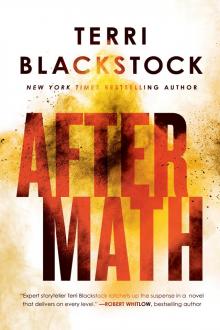 Aftermath
Aftermath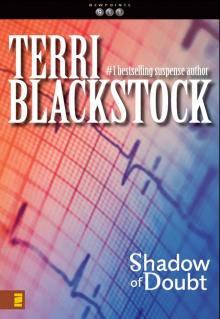 Shadow of Doubt
Shadow of Doubt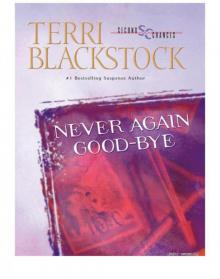 Second Chance - 05 - Never Again Good-Bye
Second Chance - 05 - Never Again Good-Bye Miracles
Miracles Broken Wings
Broken Wings the Cape Refuge (Cape Refuge Series Book 1)
the Cape Refuge (Cape Refuge Series Book 1) Shadow in Serenity
Shadow in Serenity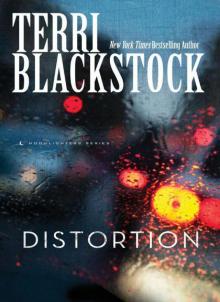 Distortion (Moonlighters Series)
Distortion (Moonlighters Series) Second Chance - 02 - When Dreams Cross
Second Chance - 02 - When Dreams Cross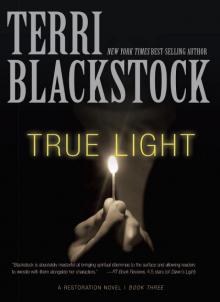 True Light
True Light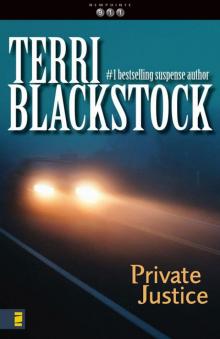 Private Justice
Private Justice Last Light
Last Light Downfall (An Intervention Novel)
Downfall (An Intervention Novel)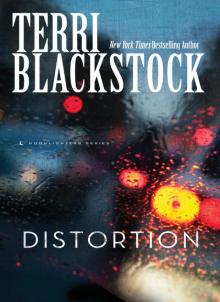 Distortion: Moonlighters Series: Book Two
Distortion: Moonlighters Series: Book Two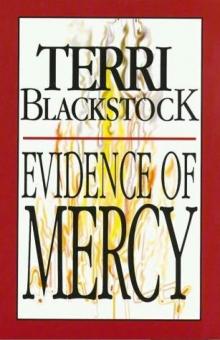 Evidence of Mercy
Evidence of Mercy If I Run
If I Run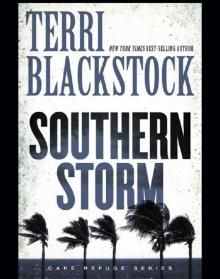 Southern Storm
Southern Storm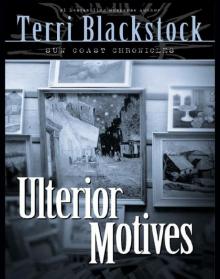 Ulterior Motives
Ulterior Motives Emerald Windows
Emerald Windows River's Edge
River's Edge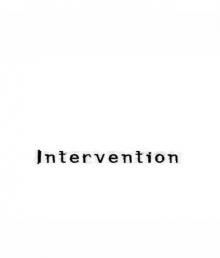 Intervention
Intervention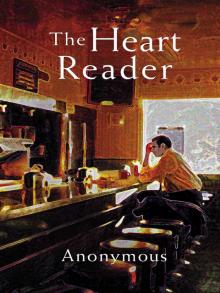 The Heart Reader
The Heart Reader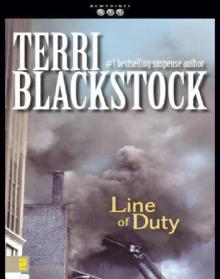 Line of Duty
Line of Duty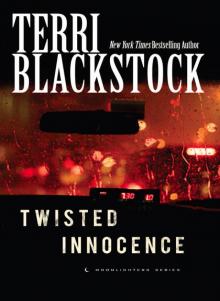 Twisted Innocence
Twisted Innocence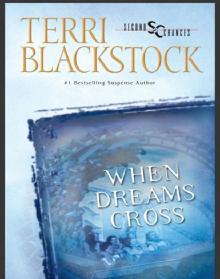 When Dreams Cross
When Dreams Cross Downfall
Downfall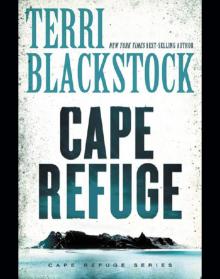 Cape Refuge
Cape Refuge Breaker's Reef
Breaker's Reef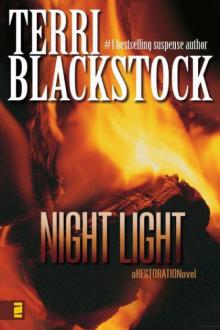 Night Light
Night Light Double Minds
Double Minds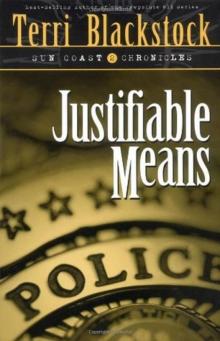 Justifiable Means
Justifiable Means Covenant Child
Covenant Child If I Live
If I Live If I'm Found
If I'm Found Vicious Cycle
Vicious Cycle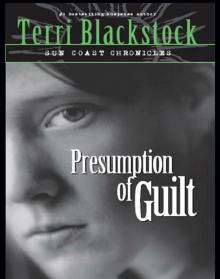 Presumption of Guilt
Presumption of Guilt Trial by Fire
Trial by Fire Word of Honor
Word of Honor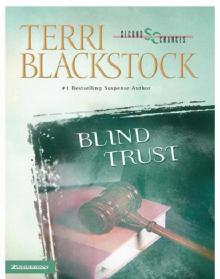 Second Chance - 03 - Blind Trust
Second Chance - 03 - Blind Trust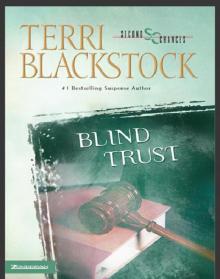 Blind Trust
Blind Trust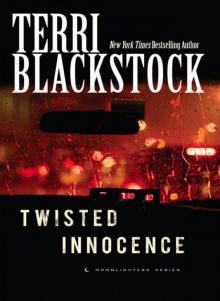 Twisted Innocence (Moonlighters Series Book 3)
Twisted Innocence (Moonlighters Series Book 3)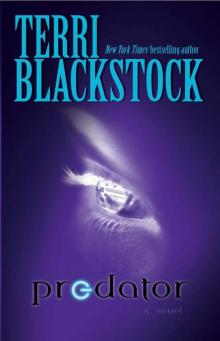 Predator
Predator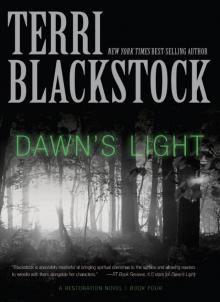 Dawn's Light
Dawn's Light Chance of Loving You
Chance of Loving You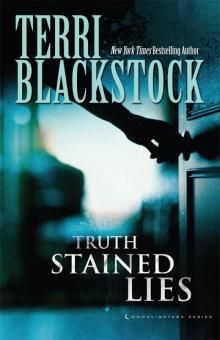 Truth-Stained Lies
Truth-Stained Lies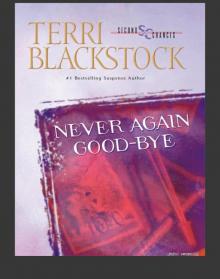 Never Again Good-Bye
Never Again Good-Bye Catching Christmas
Catching Christmas